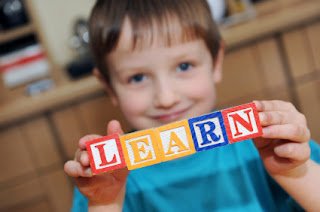 |
| Image from: http://www.relevantchildrensministry.com |
Before diving into the lessons we can learn from our childhood, I would like to begin with a little
introduction of myself. I am Royce Kok, a verdant freshman at Lehigh University.
I think I am majoring in Industrial Engineering however, that may change.
(Yeah, great, now we have a college freshman who does not even know what she
wants to do with her own life yet and she wants to go abroad to help other!)
Yep, that's me!
 |
| Side track: This is a picture of my beautiful GC cohort nine. |
Now,
I am a proud member of the Haiti- Lakes project. Haiti goes through period of drought
and period of rain. There are now artificial lakes in Haiti that acts as reservoir
for water. With this new addition, there are endless possibilities. These new
possibility includes (but not limited to) year-round agriculture business, sanitary
water supply, and fishing.
I
embrace change, so I am completely fine with the switch from Cambodia to Haiti. The motif of this class is to assist these organizations and provide them with the expertise we have as college students.
*Mini lesson: In philanthropic effort, the willingness to embrace change is very important. Our overarching goal is to help others so the interest of the NGO, host country and community should be placed before our interest. In addition, in participating in field work and collaborating with the communities, flexibility is crutial. For example, the host country might not have the same electrical supply as we do here in the United States. We have to alter the project. (Sometimes slightly but it could be starting from the scratch).
*Mini lesson: In philanthropic effort, the willingness to embrace change is very important. Our overarching goal is to help others so the interest of the NGO, host country and community should be placed before our interest. In addition, in participating in field work and collaborating with the communities, flexibility is crutial. For example, the host country might not have the same electrical supply as we do here in the United States. We have to alter the project. (Sometimes slightly but it could be starting from the scratch).
Lesson 1:
Children learn by imitation.
Actions
such as talking and walking are learning through imitation. Students of
sustainable development that wants to help the community needs to “mimicking the
way of live” of the community. This way, student will learn to put themselves
in the position of the communities.
Lesson
2: Children are creative.
 |
| This is a picture of me learning how to walk. |
Lesson
3: Children are not afraid of failure
Children
are not afraid to fail. While they are learning how to walk, they fall multiple
times a day. They somehow manage to stand back up. We need to learn the
persistence of children.
Lesson
4: Children learn through trial and error
While
children putt puzzles together, they will try to put the puzzle pieces in one
spot. However, through measurements, they quickly learn that this piece do not
fit here. As for us, there is not a lot of room to condone error in the actual
work site or host country. However, at Lehigh, while we are doing project stimulation,
it is laudable to come up with a prototype for testing purposes and to learn
through error.
Lesson
5: Children play fair.
 |
| Image from: https://www.iru.org |
Another central phrase around this class that we will use like a child would be “I don’t know.” Please do not be offended by that, we are merely being honest. The class and the groups will works hard to find the “solution”. However, there will be times where we will not know what we are doing, we will try really hard to understand the product from their cultural perspective and we will try really hard to DO NO HARM. Please do not be discouraged by the project we are starting, I invite you dive in to be part of our journey as we become the pioneers to many who comes after us.
No comments:
Post a Comment